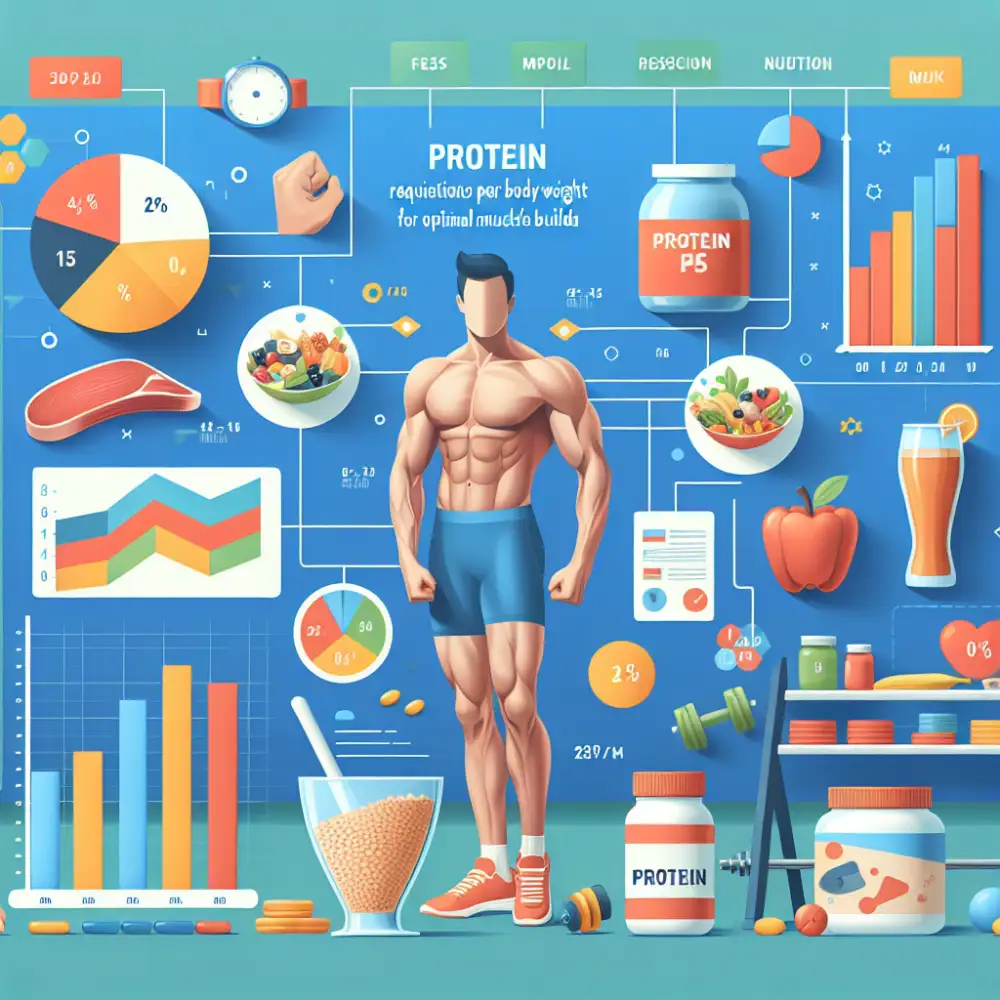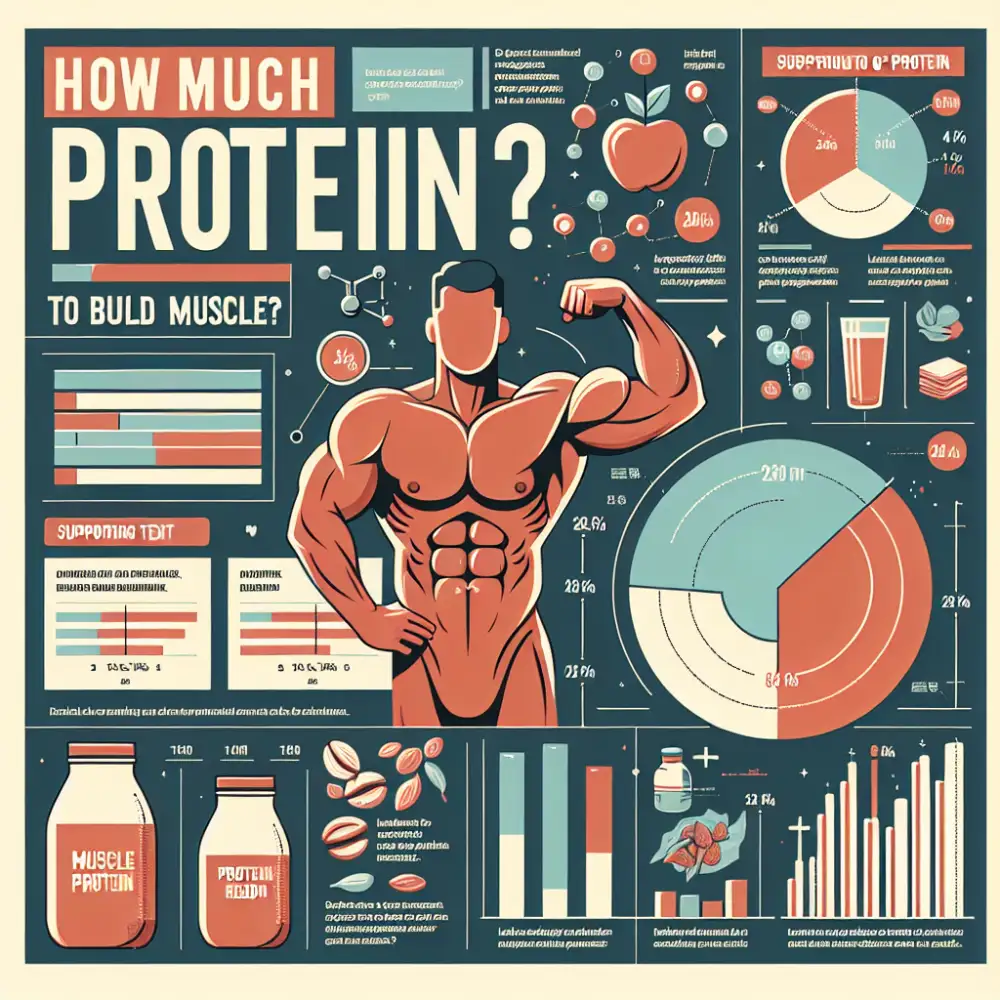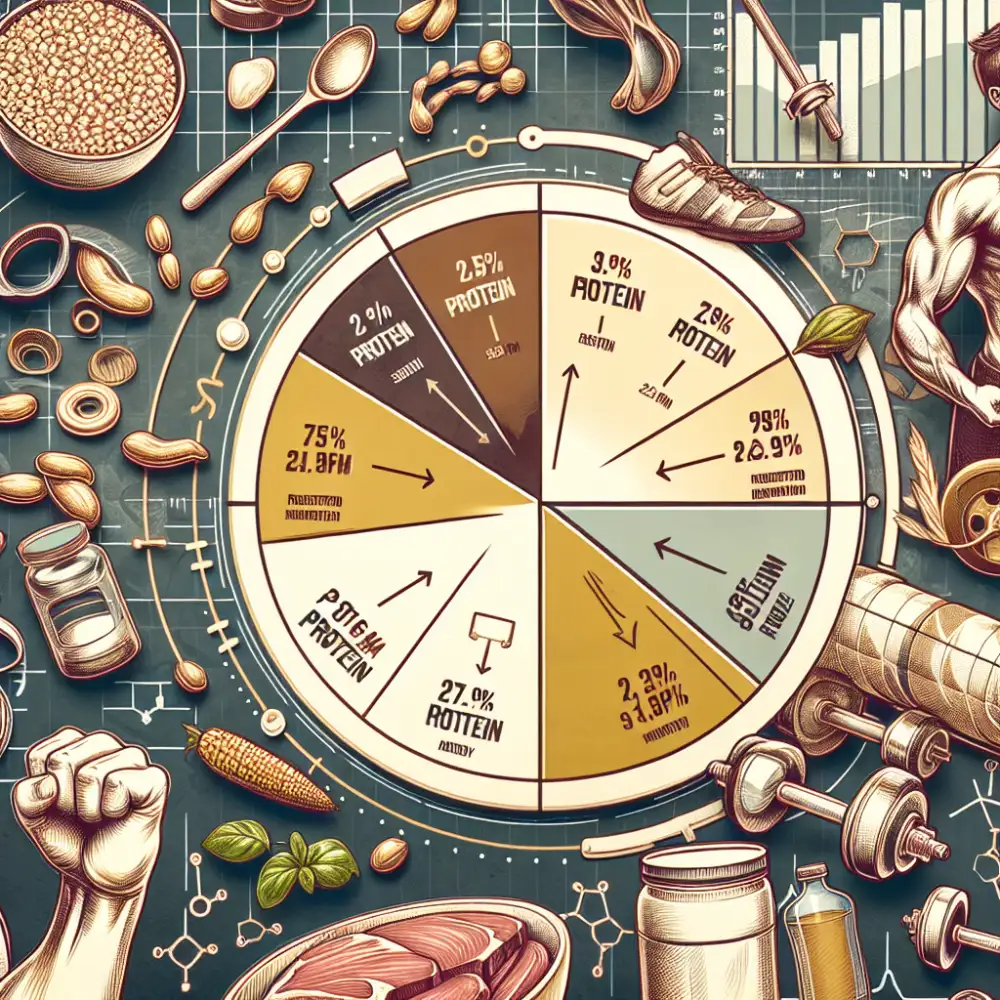Fuel Your Gains: How Much Protein Do You Need to Build Muscle?

Protein needs for sedentary adults
For generally healthy individuals who aren't hitting the gym regularly, the recommended daily protein intake is lower than for those actively trying to build muscle. The Recommended Dietary Allowance (RDA) for protein is 0.8 grams per kilogram of body weight, or 0.36 grams per pound. This translates to roughly 56 grams of protein daily for a 150-pound individual. This amount is sufficient to meet your body's basic needs for protein, which include:
Repairing and building tissues
Producing enzymes and hormones
Maintaining fluid balance
Supporting immune function
While this amount is enough to prevent protein deficiency, it might not be optimal for maximizing muscle mass or promoting muscle growth, especially as we age.
If you're not particularly active, increasing your protein intake slightly above the RDA could offer some benefits, such as:
Supporting healthy aging: As we get older, we naturally tend to lose muscle mass, a process known as sarcopenia. Consuming a bit more protein can help preserve muscle mass and strength as you age.
Managing weight: Protein is more satiating than carbohydrates or fats, meaning it can help you feel fuller for longer and potentially aid in weight management.
However, it's important to remember that simply increasing protein intake without engaging in regular exercise won't magically build muscle. Muscle growth is stimulated by challenging your muscles through activities like strength training.
Focus on incorporating protein-rich foods into your diet. Good sources include:
Lean meats: Chicken, turkey, fish
Eggs
Dairy products: Yogurt, milk, cheese
Legumes: Beans, lentils, chickpeas
Nuts and seeds
If you're unsure about the optimal protein intake for your individual needs, consulting a registered dietitian or a qualified healthcare professional is always a good idea. They can help you determine a personalized plan that aligns with your health goals and lifestyle.
Protein requirements for athletes
Athletes, especially those engaged in intense training to build muscle mass, often wonder about their protein needs. While adequate protein is essential for muscle repair and growth, the exact amount you need can vary based on several factors, including your training intensity, duration, and overall calorie intake.
For individuals involved in regular strength training aiming to build muscle, the recommended daily protein intake is generally higher than for sedentary individuals. A range of 1.2 to 2.0 grams of protein per kilogram of body weight (0.5 to 0.9 grams per pound of body weight) is often recommended.
To break it down further, let's look at different activity levels:
Recreational exercisers: If you engage in moderate-intensity workouts a few times a week, aiming for around 0.8 grams of protein per kilogram of body weight (0.36 grams per pound of body weight) is a good starting point.

Endurance athletes: For those participating in endurance activities like running, swimming, or cycling, a protein intake of 1.2 to 1.7 grams per kilogram of body weight (0.5 to 0.8 grams per pound of body weight) is generally recommended.
Strength athletes: Individuals focused on building muscle mass and strength may benefit from consuming 1.6 to 2.2 grams of protein per kilogram of body weight (0.7 to 1.0 grams per pound of body weight).
It's important to note that these are general guidelines, and individual needs may vary. Factors such as age, genetics, and overall diet can also influence protein requirements.
Consuming protein consistently throughout the day is key to maximizing muscle protein synthesis. Aim to include a source of protein with each meal and consider incorporating protein-rich snacks into your diet. Good sources of protein include:
Lean meats: Chicken, turkey, fish
Dairy products: Milk, yogurt, cheese
Eggs
Legumes: Beans, lentils, chickpeas
Nuts and seeds
While protein is crucial for muscle growth, it's essential to maintain a balanced diet that includes carbohydrates and healthy fats. Carbohydrates provide energy for workouts, while healthy fats support hormone production and overall health.
If you're unsure about your individual protein needs, it's always best to consult with a registered dietitian or sports nutritionist. They can help you determine the appropriate amount of protein for your specific training regimen and goals.
Protein timing and distribution
When it comes to building muscle, it's not just about how much protein you eat overall, but also how you distribute it throughout the day. This is where protein timing comes into play.
The idea behind protein timing is to optimize muscle protein synthesis (MPS), the process by which your body uses protein to build and repair muscle tissue. MPS is stimulated by factors like exercise and protein consumption.
Research suggests that spreading your protein intake evenly throughout the day is more beneficial for muscle growth than consuming the majority of your protein in one or two meals.
While the exact optimal amount of protein per meal is still debated, most studies suggest that aiming for 0.25-0.4 grams of protein per kilogram of body weight (0.11-0.18 grams per pound of body weight) per meal is a good starting point. For a 180-pound (82 kg) individual, this would equate to roughly 35-65 grams of protein per meal.
Distributing your protein intake throughout the day ensures a steady supply of amino acids, the building blocks of protein, available for muscle protein synthesis. This can help maximize muscle growth and recovery.

Here's a simple way to think about protein distribution:
Breakfast: Include a source of protein like eggs, Greek yogurt, or a protein shake.
Lunch: Opt for lean protein sources such as chicken, fish, tofu, or legumes.
Dinner: Similar to lunch, include a serving of protein with your meal.
Snacks: If needed, incorporate protein-rich snacks between meals, such as nuts, seeds, or a protein bar.
Remember that protein timing is just one piece of the muscle-building puzzle. Adequate calorie intake, consistent resistance training, and sufficient rest are equally important for optimal results.
It's always a good idea to consult with a registered dietitian or a certified sports nutritionist to determine the best protein intake and distribution strategy for your individual needs and goals.
| Activity Level | Recommended Daily Protein Intake (grams per kg of body weight) |
|---|---|
| Sedentary (little to no exercise) | 0.8 - 1.0 |
| Lightly Active (light exercise/sports 1-3 days/week) | 1.2 - 1.4 |
| Moderately Active (moderate exercise/sports 3-5 days/week) | 1.4 - 1.6 |
| Very Active (hard exercise/sports 6-7 days/week) | 1.6 - 1.8 |
| Extremely Active (very hard exercise/sports & physical job or training twice a day) | 1.8 - 2.0 |
Protein sources for muscle growth
Protein is an essential nutrient that plays a crucial role in muscle growth and repair. When you exercise, you create tiny tears in your muscle fibers. Your body uses protein to repair these tears, making your muscles stronger and larger. To maximize muscle growth, you need to consume enough protein.
The amount of protein you need for muscle growth depends on several factors, including your activity level, age, and overall health. However, a general guideline for healthy adults aiming to build muscle is around 0.8 grams of protein per pound of body weight, or 1.6 grams per kilogram of body weight, per day.
For example, a 150-pound person looking to gain muscle would need approximately 120 grams of protein per day. It's important to note that this is just a general guideline, and your individual needs may vary.
There are many delicious and nutritious protein sources available, making it easy to meet your daily protein requirements. Here are some of the best protein sources for muscle growth:
Lean meats: Chicken, turkey, and fish are all excellent sources of lean protein, which is low in saturated fat and calories.
Eggs: Eggs are a complete protein source, meaning they contain all nine essential amino acids that your body needs for muscle growth.

Dairy products: Milk, yogurt, and cheese are all good sources of protein and calcium, which is important for bone health.
Legumes: Beans, lentils, and chickpeas are all plant-based sources of protein that are also high in fiber.
Nuts and seeds: Almonds, walnuts, chia seeds, and flaxseeds are all good sources of protein, healthy fats, and fiber.
Incorporate these protein sources into your diet throughout the day to ensure you're getting enough to support muscle growth. A protein shake after your workout can also be beneficial for muscle recovery and repair.
Remember that building muscle is a gradual process that requires consistent effort in terms of both exercise and nutrition. By consuming enough protein and engaging in regular strength training, you can achieve your muscle-building goals.
Potential risks of high protein intake
While protein is essential for muscle growth and repair, consuming excessive amounts can potentially lead to certain risks.
It's important to note that most studies on high protein intake focus on short-term effects. More research is needed to fully understand the long-term implications. Here are some potential risks associated with high protein intake:
Kidney Issues: There's a common misconception that high protein diets harm the kidneys. While it's true that individuals with pre-existing kidney conditions should moderate protein intake, there's no strong evidence suggesting that high protein diets damage healthy kidneys.
Dehydration: When your body breaks down protein, it produces urea as a waste product. Excreting urea requires water. Consuming a high protein diet without adequate water intake can lead to dehydration.
Nutrient Deficiencies: If you're focusing solely on protein, you might not be consuming enough fruits, vegetables, and whole grains. This can lead to deficiencies in essential vitamins, minerals, and fiber.
Digestive Issues: Consuming large amounts of protein, especially from animal sources, can lead to digestive discomfort like bloating, gas, and constipation, especially if you're not used to it.
Calcium Loss: Some studies suggest that high protein diets might increase calcium excretion in urine. However, this doesn't necessarily mean it weakens bones.
It's crucial to listen to your body and consult with a healthcare professional or registered dietitian to determine the appropriate protein intake for your individual needs and goals. They can help you create a balanced diet that supports muscle growth without compromising your overall health.
Published: 25. 06. 2024
Category: Food



